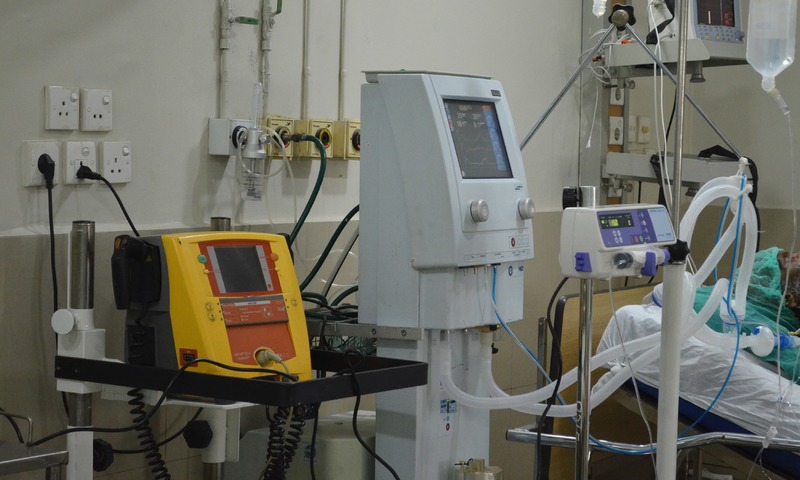
By Imtiaz Hussain
SUKKUR: The Intensive Care Unit (ICU) at KMC Hospital Khairpur remained in a state of crisis, reflecting a lamentable state of healthcare in the region. The unit was reported to lack essential equipment, including ventilators, monitors, and arterial blood gas (ABG) machines, falling short of standard ICU protocols.
Reports indicated that the hospital had only one 18-bed ICU to serve a population of 2.597 million, a capacity that proved insufficient for patients referred from surrounding Taluka hospitals. Due to the shortage of ICU beds, many patients died in general wards, which often sparked confrontations between relatives and doctors.
The ICU, despite being established at KMC Civil Hospital Khairpur, reportedly lacked fundamental equipment such as monitors, ventilators, ABG machines, suction machines, and ECG devices for an extended period. Duty doctors struggled daily to manage patients referred from general wards and those arriving in emergency situations, resulting in a higher death rate in the ICU because of inadequate facilities.
Doctors repeatedly drew the attention of the hospital’s medical superintendent to these issues, but no positive response was forthcoming. When contacted, MS Civil Hospital Khairpur Syed Masroor Zia did not provide a satisfactory reply, merely stating that he was attempting to secure the necessary facilities while adding that the deficiencies had been inherited from the previous administration.
Civil society representative Advocate Tarriq Hussain Mahaiser highlighted that despite the hospital receiving a budget of around 830 million rupees, patients continued to be deprived of essential medicines, X-ray films, oxygen, and emergency services. He remarked that both emergency and ICU services operated at the same level as general wards.
Mahaiser added that civil society had repeatedly staged sit-ins and protest rallies demanding improved health services, yet authorities including the Chief Minister of Sindh, the Health Minister, the Secretary of Health, and the Chief Secretary of Sindh had failed to take notice. He attributed the institutional shortcomings to politically motivated postings of the medical superintendent and other officials. Ikhtiar Hussain Khaskhely stated that the people of Khairpur deserved better.
He urged authorities to take concrete steps to address systemic failures that had led to the current crisis. “The government must prioritize healthcare, allocate sufficient resources to upgrade the hospital’s infrastructure, and ensure that patients receive the care they deserve. Anything less would betray the public’s trust,” he said, stressing the need for authorities to assume responsibility and uphold patient well-being and dignity.


